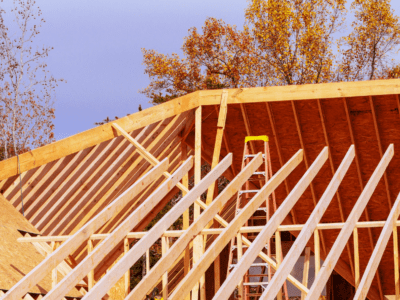A Strangely Important Case about… Boilers?
UCLA Law’s clinic files Ninth Circuit brief in defense of core air pollution control authority.
When I think about sources responsible for LA’s air pollution, I don’t first think about water heaters, boilers, and other medium-scale appliances. But it turns out that appliances that burn natural gas to heat water are, in aggregate, an incredibly significant source of nitrogen oxides (NOx), an air pollutant that worsens smog and causes serious health harms. And our air regulators know this very well. When South Coast AQMD recently issued a rule to eliminate NOx emissions from certain appliances, like gas-powered boilers, estimates were that the rule covered about 10% of all stationary source emissions of NOx in the basin. That’s a huge amount in a region that’s scraping for any increment of progress to come into compliance with Clean Air Act mandates.
That rule, 1146.2, is now being challenged in a case before the Ninth Circuit. But it’s no longer just about boilers and water heaters, if it ever was. A group of regulated parties and some others are challenging the rule on the theory that it is preempted by the Energy Policy and Conservation Act (EPCA), because the rule affects and therefore “concerns” appliances’ energy use within the meaning of EPCA’s preemption clause. (That preemption clause says that only the federal government may regulate covered appliances in a way that concerns their energy consumption or energy use, with exceptions.)
But here’s the thing: Many types of emission standards — ordinary, run-of-the-mill air pollution control measures adopted in states and regions across the country — can affect the energy use of appliances. Typical NOx emission standards for appliances incidentally affect energy use and consumption in a variety of ways: sometimes by increasing energy efficiency, sometimes by reducing energy efficiency, and sometimes by inducing a change in fuel type altogether. This is always an incidental side effect of compliance efforts to reduce air pollution, but it is often not a trivial effect. So, if this boiler rule goes down, a lot more may (wrongly and unnecessarily, in my view) be endangered.
In part for these reasons, a district court rejected challengers’ EPCA argument in this case, noting that”
The Rule addresses the pollution appliances emit and not their energy use. It says nothing about the quantity of gas an appliance may use. . . [I]f taken to its logical conclusion, this interpretation would upset the historic and recognized powers of states and local governments to set emissions standards and implement other regulations designed to protect the health and safety of their citizens.
Hopefully the Ninth Circuit will agree. This case is an important one in part because it will influence whether the Circuit’s CRA v. Berkeley decision preempting Berkeley’s gas ordinance (which you can read about here) will be extended in a way that limits air agencies’ ability to protect public health with emissions-based air pollution standards.
As one indication of the far-reaching implications of the case, the Northeast States for Coordinated Air Use Management (“NESCAUM”) filed an amicus brief to help highlight what’s at stake outside of California. NESCAUM is a coalition of eight state air agencies that promotes regional cooperation and action by its member states in support of effective programs to reduce the adverse public health and environmental impacts of air pollution and climate change. (It filed the brief solely as an organization and not on behalf of its member states.) NESCAUM was represented by the UCLA Law Frank G. Wells Environmental Law Clinic, and I served as counsel along with my colleagues Brennon Mendez and Tiffany Deguzman. You can read the brief here.





Reader Comments